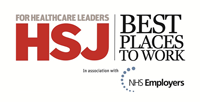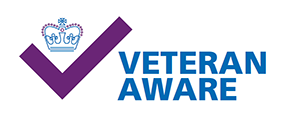
Maternity Service
Our Information Leaflets
Title - Safer Sleep in Winter
Description - The Lullaby Trust have put together a guide for how you and your baby can sleep safely this winter.
Title - Advice for Mothers staying on the Neonatal Unit
Description - At present, it is necessary for your baby to be in hospital under the care of the neonatal team and we appreciate that you need to be close to your baby to feed and provide care, despite being fit and well and not otherwise needing to remain as an inpatient in hospital. We are happy to accommodate you with a bed, meals and washing facilities on the Neonatal Unit, but you do not need to consider yourself to be an inpatient, rather a mother who is here with her baby.Title - Aspirin in pregnancy for the prevention of pre-eclampsia
Description - Pre-eclampsia affects around two to three in every 100 pregnant women. The usual signs of pre-eclampsia are raised blood pressure and protein in your urine. You may experience swelling of your hands, feet and face, headaches, flashes of light in your vision, pain in the upper abdomen and/or nausea and vomiting. Pre-eclampsia usually occurs towards the end of pregnancy. The high blood pressure can be treated with medication, but pre-eclampsia itself is not cured until the baby is delivered. In rarer cases (around five in every 1,000 pregnant women) it leads to more severe disease. This may start earlier and affect the growth of the baby in the womb or the health of the mother. In these cases, the baby may need to be delivered earlier.Title - Being overweight During Pregnancy and After Birth
Description - Most women who are overweight have a straightforward pregnancy and birth and deliver healthy babies. However being overweight does increase the risk of complications to both you and your baby. This information is about the extra care you will be offered during your pregnancy and how you can minimise the risks to you and your baby in this pregnancy and in a future pregnancy.Title - Breech Presentation and External Cephalic Version
Description - Most babies are born head first, but at the end of pregnancy around 3-4% are found to be breech. Before 37 weeks it does not matter if your baby is breech, as there is a very good chance that the baby will turn spontaneously. After that time there are some babies that will turn themselves, but it becomes less likely. If your baby remains in a breech position, an appointment will be made with an obstetrician to discuss your birthing options.Title - Cannabis Use in Pregnancy
Description - Cannabis is the most widely used illegal substance in the U.K.Title - Drugs & Pregnancy
Description - If you are using drugs, here is some information to help you.Title - Group B Streptococcus (GBS) in pregnancy and newborn babies
Description - This information is for you if you (or a friend or relative) are expecting a baby, planning to become pregnant or have recently had a baby. This leaflet is provided by the Royal College of Obstetricians and Gynaecologists.Title - Improving the outcome for preterm babies: Information for Parents
Description - We now know there are 7 key measures that will improve the outcome for preterm babies, that is babies born before 37 weeks. Babies that are born before 27 weeks (or 28 weeks for multiple pregnancies, e.g. twins) are considered to be extremely preterm. These measures are known as the Optimisation Care Bundle. This leaflet will explain how this bundle can help your baby.Title - Information for Mothers who are expecting a large for gestational age (LGA) baby
Description - You have been given this leaflet because you might be having a baby that has an estimated weight more than the average at this stage of pregnancy. This is referred to as “large for gestational age (LGA)”. We understand that this might be concerning, and we hope that this leaflet will provide more information regarding this matter.Title - Manual Removal of the Placenta (afterbirth) and Management of Ragged Membranes
Description - Following the birth of your baby, the placenta (afterbirth) normally delivers with ease. Sometimes the placenta gets stuck on the wall of the womb (retained placenta), and does not deliver and in these circumstances you would usually require a manual removal of the placenta under anaesthetic (either a general or regional anaesthetic).Title - Omega 3 for Preterm Birth Prevention
Description - Research published in November 2018, found that Omega 3 supplements can help you have a full-term pregnancy. The supplements also help babies grow to a healthy weight in the womb. You have been identified as someone who has a higher risk of preterm birth, and so a supplement to prevent preterm birth could be especially helpful in your pregnancy.Title - Parents’ Guide to Skin to Skin Contact: What you need to know
Description - We believe that all mothers and babies should have the opportunity, wherever possible, to enjoy skin to skin contact straight after birth. Skin to skin contact is a fantastic way to bond with your baby. It is especially important if you intend to breastfeed, but regardless of your feeding intentions it will help your newborn adjust to his/her new surroundings, calm their breathing and keep them close and safe.Title - Postnatal Discharge Infant Feeding Support
Description - Congratulations on the birth of your baby. By now you will have probably decided how you wish to feed your baby. However, if you are undecided or would like any information or support to help you make a decision, please contact the Infant Feeding Team or ask your health care professional to refer you to us on your behalf.Title - Pre-Labour Rupture of the Membranes (waters breaking before labour starts)
Description - Sixty percent of women will go into labour (without any help or intervention) within 24 hours of their membranes rupturing (waters breaking). The rate of labour (without any help or intervention) after this is 5% per day.Title - Remifentanil Patient Controlled Analgesia (PCA) for pain relief in labour
Description - Remifentanil is a strong morphine-like pain relieving medication, that we can offer to patients in labour on the Delivery Suite. It has a very rapid onset and short duration of action making it well suited to the treatment of intermittent contraction pains experienced during labour. wnloadTitle - Requesting a baby loss certificate
Description - A baby loss certificate is a certificate that formally recognises the impact of losing a child early on in pregnancy. It is for parents who experience a loss within the first 24 weeks of pregnancy. The certificate is not a legal document, and it is not a death certificate, but it is a way of acknowledging that your baby existed.Title - The effects of giving formula milk to a breastfed baby - A guide for parents
Description - Breast milk contains all the food and water a healthy baby needs until they are six months old. In the first few days, your breasts produce colostrum, the valuable first milk. Healthy, full term babies do not need “top up” feeds of formula milk, as your colostrum is perfect for your baby’s needs, even in small amounts.Title - Third- and Fourth-Degree Tears
Description - For some women, a tear that happens at delivery may be deeper than average and extend into the muscle that surrounds and controls the anus (this muscle is known as the anal sphincter). Tears like this are known as “third- or fourth-degree tears” (also known as an obstetric anal sphincter injury/OASI). They happen in up to 6 out of 100 births (6%) for first time mothers and less than 2 in 100 births (2%) of births for women who have had a vaginal birth before.Title - Transvaginal Cervical Cerclage (Stitch)
Description - This information is for you to make an informed decision about your care. This leaflet aims to help you better understand your health and the options available for you and your care. We are here to support you to make a decision that is right for you. If you have any further questions, then please ask any member of the preterm birth clinic team and we will support you and answer your questions.Title - Treating bacterial infections in newborn babies
Description - This leaflet is only about infections caused by bacteria and does not cover viral infections. Bacterial infections can be serious for newborn babies, especially if they are not treated quickly. Some babies (including unborn babies) are more at risk of developing an infection and need extra care and monitoring. It is also important to take the right steps to prevent and treat infections for all mothers and their babies, before and after they are born.Title - Vaginal Progesterone Pessaries(Cyclogest) for preterm birth prevention in singleton pregnancies
Description - Progesterone is a natural hormone made by the body throughout a woman’s menstrual cycle. During pregnancy, it helps to support the growing uterus and prevent uterine contractions. In certain women who have a higher risk of preterm birth (before 37 weeks of pregnancy), treatment with vaginal progesterone pessaries may help to minimise the chance of this happening.Title - You and your premature baby
Description - This leaflet is written for parents who are at risk of having a very premature baby (delivering between 22 and 25 weeks of pregnancy). We will help you to make some important choices about your care before and during labour if this was to happen. This leaflet contains important information to help you decide what would be best for you, your baby and your family. We are happy to go through this leaflet with you to explain things further and give you a chance to ask questions. The obstetricians (doctor who look after pregnant women) and neonatologist (doctor who look after sick newborn babies) will discuss with you what it may mean for your baby if he or she delivers early. Babies born very prematurely may not survive or may have long term problems. These problems are set out in more detail below. The chances of survival depend on many factors including how many weeks into the pregnancy you are, birth weight, any abnormalities picked up on scan, how strong they are when they are born and whether there is any infection present. You will be offered a visit to the neonatal unit, which is where your baby is likely to receive specialist care, if delivered early.






